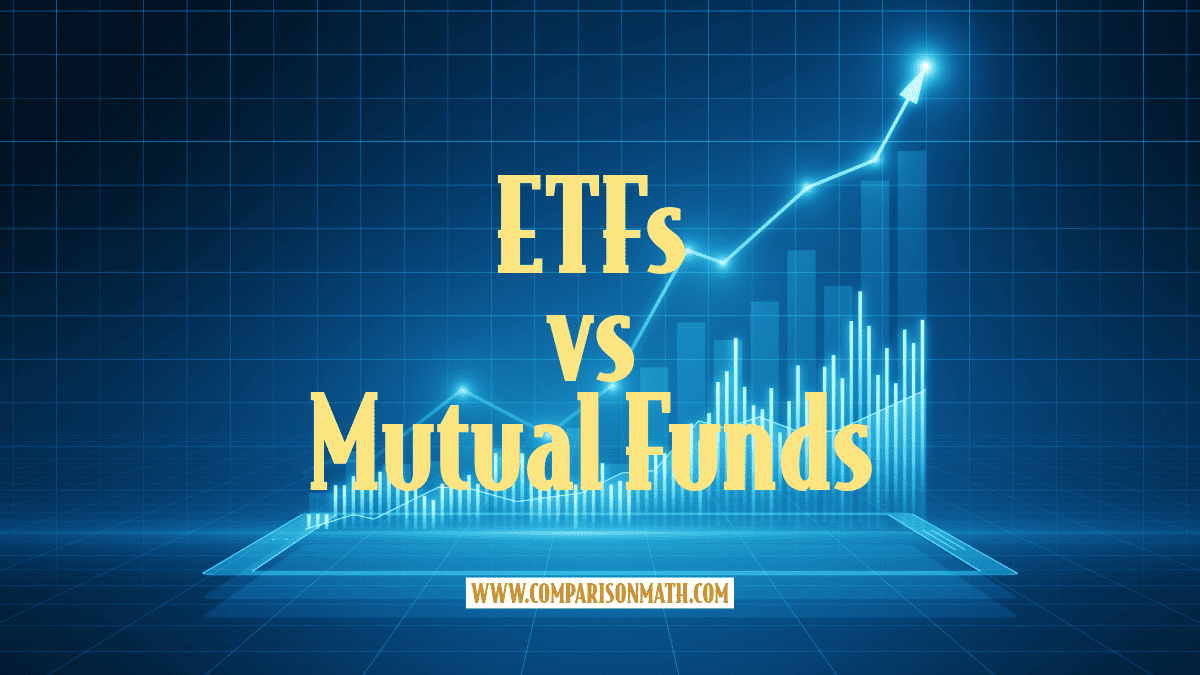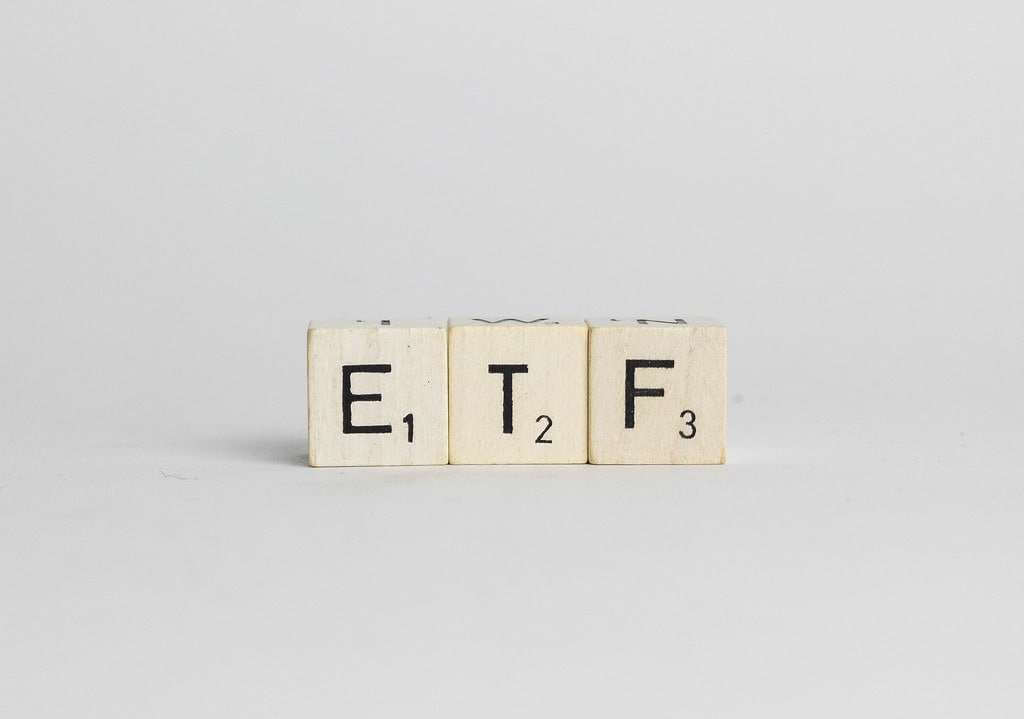Physical Address
304 North Cardinal St.
Dorchester Center, MA 02124
Physical Address
304 North Cardinal St.
Dorchester Center, MA 02124

In today’s financial landscape, understanding the nuances of investment options is key to building a robust portfolio. The debate of “ETFs vs Mutual Funds” is at the forefront of this exploration, as both have become pillars of modern investment strategies. This comprehensive guide will delve deep into each investment type, helping you make informed decisions tailored to your financial goals.

Exchange-traded funds (ETFs) are a type of investment fund traded on stock exchanges, much like stocks. An ETF holds assets such as stocks, commodities, or bonds. It typically operates with an arbitrage mechanism designed to keep it trading close to its net asset value, although deviations can occasionally occur.

How ETFs Work in the Financial Market
ETFs offer an advantage in terms of liquidity and cost-effectiveness. They allow investors to buy and sell shares throughout the trading day at market price, potentially providing greater control over the investment. This flexibility makes ETFs particularly attractive to those looking to take advantage of short-term market fluctuations.
Mutual Funds are investment vehicles made up of a pool of funds collected from many investors to invest in securities such as stocks, bonds, money market instruments, and other assets. Managed by professional money managers, allocate the fund’s assets and attempt to produce capital gains or income for the fund’s investors.

The Operational Structure of Mutual Funds
A key feature of mutual funds is that they are typically purchased at the end of the trading day at a price reflecting the fund’s net asset value, calculated at the close of each trading day. This setup is ideal for investors who prefer a more hands-off approach, relying on the expertise of fund managers to make investment decisions.
A brief look at the history of these investment vehicles reveals their evolving role in the financial markets. ETFs, for instance, emerged in the early 1990s, offering investors a hybrid between mutual funds and individual stocks. Mutual funds, on the other hand, have been a part of the investment landscape since the 1920s, evolving to cater to a diverse range of investment strategies.
Investing is not a one-size-fits-all journey. Understanding the distinctions between ETFs and Mutual Funds is crucial for making informed choices that align with your financial goals.
Active vs Passive Management in ETFs and Mutual Funds
ETFs are often associated with passive investment strategies, tracking a specific index or sector. This passive management often results in lower fees and less frequent trading, which can benefit long-term investors.
Mutual Funds, conversely, are typically actively managed. Fund managers actively select stocks and other assets in an attempt to outperform the market. This can potentially lead to higher returns but also comes with higher fees and more active trading strategies.
Expense Ratios and Management Fees
Cost is a significant factor in any investment decision. ETFs generally have lower expense ratios compared to mutual funds. This is because the passive management style of many ETFs incurs fewer administrative costs.
On the other hand, Mutual Funds often have higher expense ratios due to active management. The fees pay for the fund manager’s expertise and active trading, but they can eat into the investment’s returns over time.
Tax Efficiency Comparison
ETFs typically offer greater tax efficiency due to their unique structure and lower turnover rate. With their higher turnover and capital gains distributions, mutual funds can be less tax-efficient, especially for investments held in taxable accounts.
Trading ETFs like Stocks vs Buying Mutual Funds at the End of the Day
ETFs offer the flexibility of trading throughout the day like stocks. This allows investors to react quickly to market changes.
Mutual Funds, in contrast, are only traded at the end of the trading day at a price based on the fund’s net asset value. This approach suits investors who prefer a more set-and-forget strategy and are less concerned about intra-day market movements.
Diversification and Lower Costs: ETFs provide an easy way to diversify your portfolio across various assets. Their lower expense ratios make them a cost-effective option, especially for individual investors.
Flexibility and Transparency: The ability to trade ETFs throughout the day offers flexibility. Additionally, ETFs often provide more transparency in terms of holdings, allowing investors to understand exactly what they are invested in.
Market Price Variations: While ETFs can be traded like stocks, this also means they are subject to market price fluctuations throughout the day, which can be a risk for some investors.
Brokerage Fees: Buying and selling ETFs typically involves brokerage fees, which can add up, especially with frequent trading.
Professional Management: Mutual Funds are managed by experienced professionals, making them ideal for investors who prefer a hands-off approach.
Simplicity and Automatic Reinvestment: These funds often offer automatic reinvestment of dividends and capital gains, simplifying the process for investors.
Higher Fees and Potential Underperformance: The higher fees associated with active management can impact returns. Additionally, there is no guarantee that a fund manager will outperform the market.
Limited Trading Opportunities: Since mutual funds are only traded at the end of the day, investors cannot take advantage of intra-day price movements.
Targeting Specific Market Exposure: Investors who prefer having control over specific market sectors or industries may find ETFs more appealing. Their flexibility allows for targeted investments, including niche sectors.
Active Traders: Those who enjoy trading and have the time to monitor market movements can benefit from the intra-day trading capability of ETFs.
Long-term Investors: Mutual Funds are often suited for individuals with a long-term investment horizon. Their structure is designed for gradual wealth accumulation over time.
Retirement Planning: Given their hands-off approach and diversification, mutual funds are frequently chosen for retirement portfolios.
Growth of ETFs: ETFs have seen significant growth in popularity, with an increasing number of products offering various market exposures.
Shifts in Mutual Fund Investments: While still popular, some mutual funds have seen shifts in investor preferences, particularly towards low-cost index funds.
Regulatory Changes: The investment landscape is continually evolving, with potential regulatory changes that could impact both ETFs and Mutual Funds.
Market Dynamics: As global economic conditions change, the role and performance of ETFs and Mutual Funds may also evolve, highlighting the need for investors to stay informed.
Summary: This article has explored the intricate details of ETFs vs Mutual Funds, providing insights into their structures, benefits, downsides, and suitability for different types of investors.
Final Thoughts: The choice between ETFs and Mutual Funds should be guided by individual investment goals, risk tolerance, and investment horizon. It’s important to remember that both options have their place in a well-rounded investment portfolio.
Call-to-Action: We encourage our readers to continue researching, consult with financial advisors, and explore our other resources for more information on making informed investment decisions.
While understanding the differences between ETFs and Mutual Funds is a significant step in your investment journey, there’s a whole world of diverse investment options waiting for you. We invite you to visit our Investment Category Page where you’ll find a wealth of resources and insights on various investment strategies, market trends, and tips for building a resilient portfolio. Whether you’re looking to broaden your investment knowledge or find specific advice tailored to your financial goals, our comprehensive collection has something for everyone.